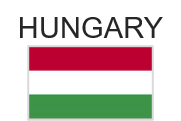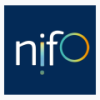The table below aims at gathering the administrative and governmental bodies of Hungary, which are responsible for digital public administration policies and interoperability policies.

National
According to Government Decree 182/2022 (V 24) on the Competences and Powers of the Members of the Government, the Cabinet Office of the Prime Minister is responsible for eGovernment, IT, harmonisation of eGovernment and IT development within the public sector, government IT infrastructure, electronic communications and audiovisual media. The Cabinet Office of the Prime Minister delegates most of its eGovernment and IT tasks to the Digital Hungary Agency.
Another important stakeholder in shaping the government’s digital policy is the 100% State-owned DKÜ Digital Government Agency Ltd. Under the supervision of the Cabinet Office of the Prime Minister, it is responsible for the consolidation of IT-related procurement of public sector bodies.
According to Government Decree 307/2022 (VIII 11), the Digital Hungary Agency has been established under the Cabinet Office of the Prime Minister to take responsibility for eGovernment, IT, government ICT, harmonisation of eGovernment and IT development, government IT infrastructure and electronic communication for government purposes. Strategic governance, policy formulation, project planning, definition of policy criteria for development projects, provision of eGovernment building blocks and supervision of ICT public procurement related to the above-mentioned tasks belong now to the responsibilities of the Digital Hungary Agency.
|
Zoltán Guller, Dr. Chief Executive Officer (CEO) Digital Hungary Agency
|

|
Ádám Bönde Chief Information Officer (CIO) Digital Hungary Agency
|
As part of its industry and business development tasks, the Ministry for Economic Development is responsible for the ICT industry and the digitalisation of industry and businesses, and supports the uptake of emerging technologies (AI, 5G, blockchain, drones, etc.).
As ministry responsible for public education and social inclusion, the Ministry of the Interior plays an important role in developing digital skills. In addition, it is also responsible for eHealth and the development of the above-mentioned national eHealth platform (EESZT)
As ministry responsible for higher education, vocational education and adult education, the Ministry of Culture and Innovation is responsible for innovation policy and plays an important role in developing digital skills and training ICT specialists
Functioning under the control of the Digital Hungary Agency, the fully State-owned NISZ Zrt. is the main IT service provider for Hungarian government organisations. In addition to maintaining the government IT infrastructure (including the Government Data Centre) and services, the strategic goals of the company also include the development of eGovernment solutions. As a result, most of the government IT infrastructure, regulated electronic administrative services (building blocks) and eGovernment services are provided by NISZ Zrt.
The Governmental Information Technology Development Agency (KIFU) serves as a framework for the development and operation of the research network in Hungary. At the same time, the National Information Infrastructure Development (NIIF) Programme, in accordance with international practices, plays a leading role in the development and introduction of the most advanced networking technologies in Hungary.
In 2020, KIFU also established the National HPC Competence Centre, which joined the network of the EuroHPC Competence Centres on 1 September 2020.
Within the framework of the Digital Success Point Network, the government supported the development of existing community internet access points (Digital Success Points) and the establishment of new ones by broadening the service portfolio and developing their infrastructure, tools and services. That way, citizens who were not connected could become part of the digital world.
The plan was to support at least 1 500 community internet access points countrywide. By the end of 2018, the aim of the project was fulfilled and the technical device installation completed. In addition, more than 1 500 mentors were trained to help citizens who needed assistance to use ICT or electronic public services.
The State Application Development Environment (FLORA) and the State Application Catalogue (LIBRA) were set up in January 2020 and have been functioning since then. Their aim is to promote standardisation and transparency in application development within the Hungarian public administration, with the objective of avoiding duplication of developments, fostering reusability and reducing supplier/vendor dependencies.
LIBRA provides a detailed picture of the current situation of State software assets at technology level, helping to prevent parallel, unjustified State developments and thus fostering reuse. In February 2023, 156 public bodies were connected to LIBRA, containing to date more than 3 400 software applications.
FLORA also provides an application development platform (ORION), i.e. a cloud-based, state-of-the-art IT system that covers the entire development process (building, testing and deploying) of new and unique applications of State interest meeting the goals of Government Decree 314/2018 (XII 27) on the State Application Development Environment and Catalogue.
The Permanent Secretary of State is responsible for the coordination of tasks related to eGovernment and IT policy and strategy-making, which is done via the Digital Hungary Agency
According to Government Decree 307/2022 (VIII 11), the Digital Hungary Agency has been established under the Cabinet Office of the Prime Minister to take responsibility for eGovernment, IT, government ICT, harmonisation of eGovernment and IT development, government IT infrastructure and electronic communication for government purposes. Strategic governance, policy formulation, project planning, definition of policy criteria for development projects, provision of eGovernment building blocks and supervision of ICT public procurement related to the above-mentioned tasks belong now to the responsibilities of the Digital Hungary Agency.
The Deputy Secretary of State for Informatics within the Ministry of the Interior is responsible for tasks related to policy- and strategy-making on local government public administration IT infrastructure and eGovernment services (e.g. Municipality ASP, Smart City Platform), in cooperation with the Secretary of State for Local Governments of the Ministry.
The Secretary of State for Regional Public Administration is responsible for policy- and strategy-making in the field of the development of local public administration and governmental one-stop-shops.
The National Association of Local Authorities (TÖOSZ) is the representative organisation of the majority of Hungarian municipalities, promoting the interests of its members towards the central government and providing them with support services.
The Association of Cities of County Rank (MJVSZ) represents the collective rights of Hungary’s largest cities (23), protecting and promoting their interests, developing the operation of local self-governments, and cooperating with other national and international associations of local governments in support of the government’s central eGovernance system and policy.
The National Association of Intelligent Local Authorities (ITOSZ) is dedicated to promoting cooperation among local authorities in the field of ICT and information management, planned and implemented at central level.

